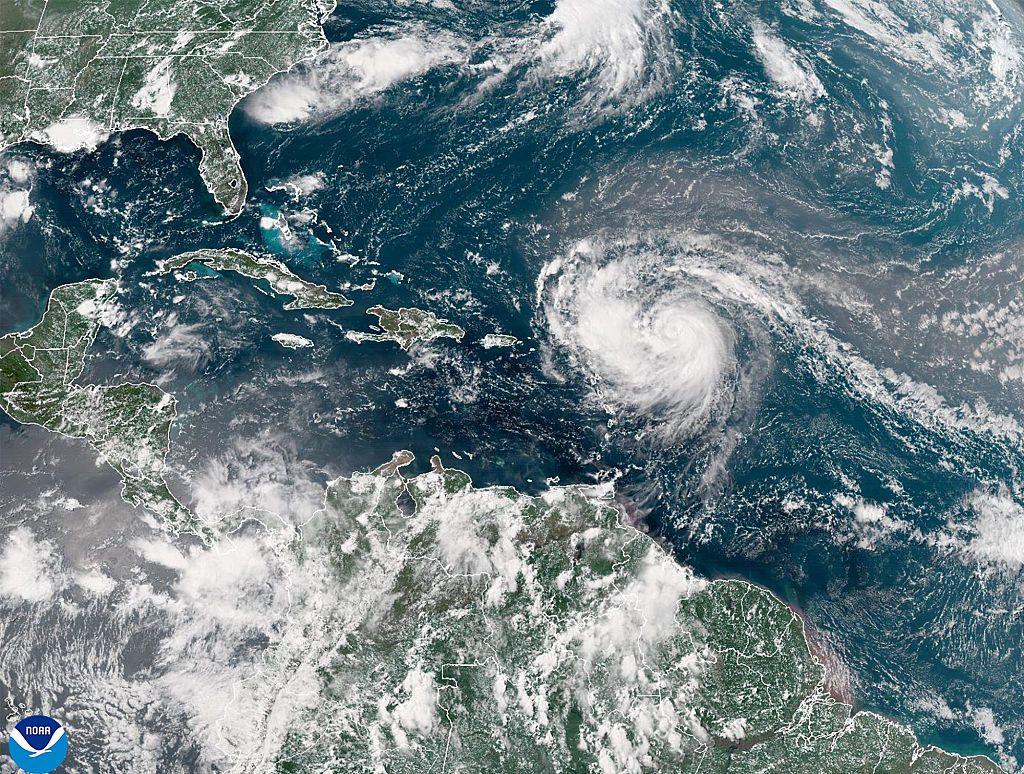Hurricane Erin has rapidly intensified, reaching Category 5 status with maximum sustained winds of 160 mph (260 km/h).
National Hurricane Center Director Mike Brennan stated in a briefing that the “extremely powerful” storm underwent “explosive deepening and intensification” overnight, evolving from a tropical storm on Friday.
Over the weekend, Erin is anticipated to pass north of the Leeward Islands, the Virgin Islands, and Puerto Rico, bringing rainfall of up to 6 inches (15 cm) and posing a risk of flash flooding and mudslides.
Currently, the storm, which marks the first hurricane of the 2025 Atlantic season, is not projected to make landfall on the continental United States.
Hurricane Erin underwent rapid intensification, defined as a storm strengthening by at least 34 mph within a 24-hour period.
According to Mr. Brennan, Erin’s winds intensified from 100 mph in the early hours of Saturday morning to 160 mph.
Forecasts indicate that Hurricane Erin will gradually move northward next week, passing east of the Bahamas and approaching the Outer Banks of North Carolina.
Mr. Brennan cautioned that the storm will generate life-threatening surf and rip currents along nearly the “entire east coast” of the United States next week.
Florida and the mid-Atlantic states are expected to experience the most dangerous surf conditions, he noted.
Mr. Brennan further added that Bermuda could also face “life-threatening” surf conditions and heavy rainfall.
Due to gale-force winds, the US Coast Guard is implementing restrictions for vessels at ports on St. Thomas and St. John in the US Virgin Islands, as well as in six municipalities in Puerto Rico, including San Juan.
The National Oceanic and Atmospheric Administration (NOAA), the US government’s primary weather agency, has predicted an “above normal” Atlantic hurricane season this year.
Projections indicate that the number of tropical storms reaching Category 4 and 5 is likely to increase due to global warming.

